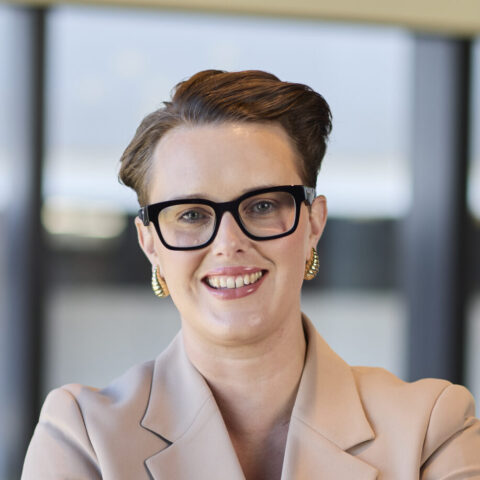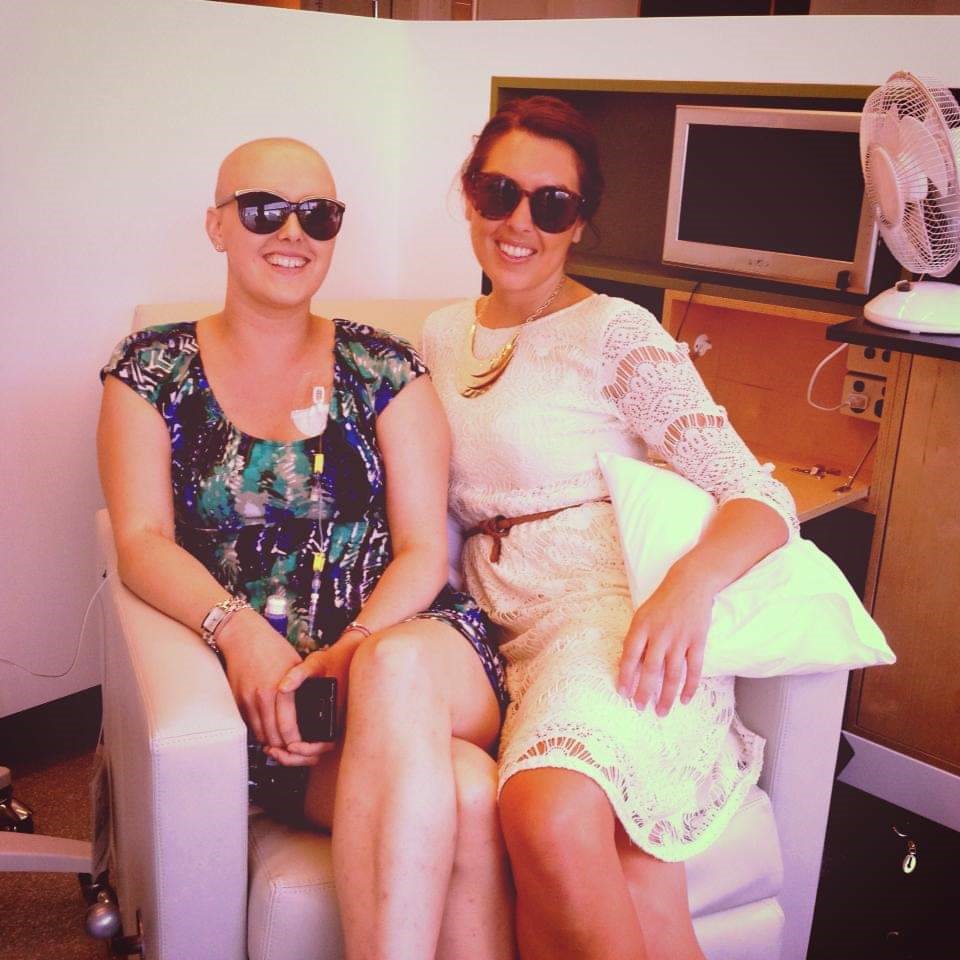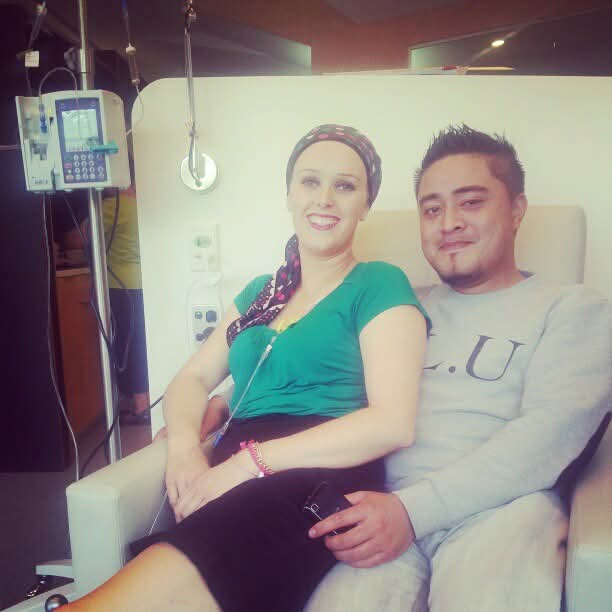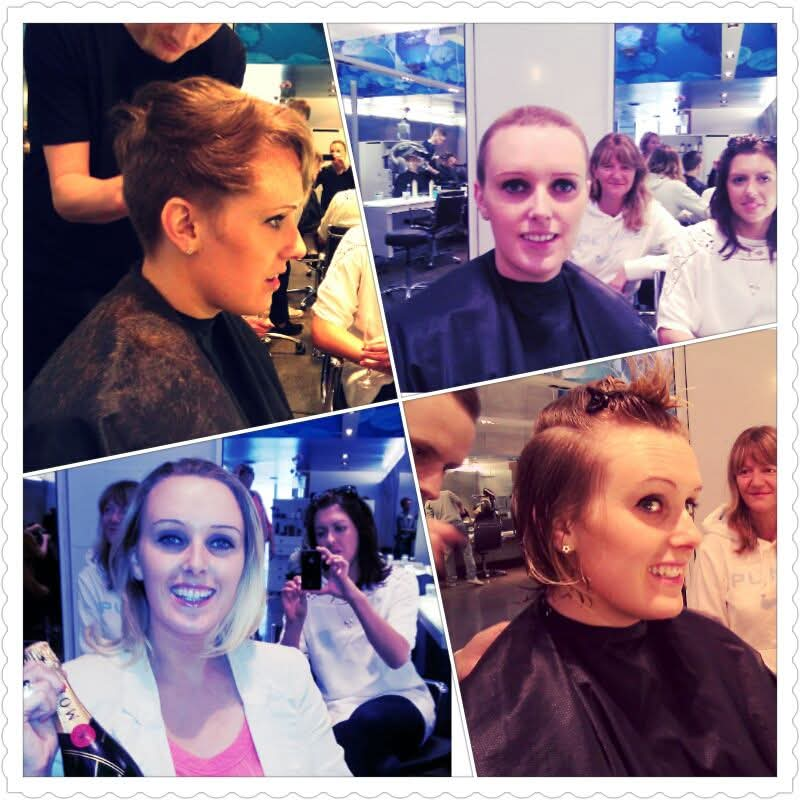As a 24-year-old, Emma Crowley hadn’t been thinking about the possibility of breast cancer until the day she found a lump under her armpit.
While shaving, she noticed, for the first time, a lump “the size of a golf ball” and decided to go speak to her doctor about it.
“I sort of thought that’s really weird… maybe it’s a swollen gland,” Crowley recalls, but when she asked her doctor about it, they immediately ordered an ultrasound.
What happened next occurred in quick succession, she tells Women’s Agenda. The ultrasound uncovered a second lump, which led to a biopsy, and ultimately, Crowley’s health team sat her down to tell her the news that it was HER2-positive breast cancer.
“You’re sort of in shock and don’t really know what to think,” Crowley says, adding that her initial thoughts floated towards how cancer was going to be inconvenient to her life plans as a young woman.

At the time, Crowley had been studying for a law degree and was a mum to a toddler, so the mental, physical and financial implications of a cancer diagnosis were all extremely palpable to her.
“Unless you’ve been in it, and you’ve seen someone else that has had cancer and survived it, the news can feel terrifying,” says Crowley.
While the average age of breast cancer is approximately 62.7 years, Cancer Australia has identified a trend in rising early onset cancers, including breast cancer.
Between 2000 and 2025, the incidence of breast cancer in women aged 30–39 climbed from 22.1 to 22.7 cases per 100,000, according to research out of the Australian Institute of Health and Welfare. In the 40–49 age group, the incidence jumped from 76.6 to 81.1 per 100,000.
With more women under the age of 50 being diagnosed with breast cancer, awareness and early detection is critical.
After receiving her own breast cancer diagnosis, Crowley’s first move was to call her parents in Wellington, who thankfully were supportive both emotionally and financially towards her treatment options.
“I was very lucky, but it’s a huge financial burden,” says Crowley, who worked to make income through her treatment as much as she was physically capable.

She underwent chemotherapy straight away and achieved a pathological complete response, meaning there was no evidence of cancer present at surgery. She went on to have surgery and radiation to ensure anything left was removed .
“When you’re 24 and you get cancer, it’s such a surprise to everyone,”says Crowley. “And all your friends are so young, and everyone’s living their life to the fullest.”

The reality for young women with breast cancer
Young women diagnosed with breast cancer can often face unique challenges, including fertility concerns, early menopause, career disruption, and emotional distress– issues that demand tailored support and informed care strategies.
Luckily, as a young woman with a big group of friends and a caring family, Crowley felt very supported along her cancer journey, along with her access to advanced medical care in New Zealand.
“Once you trust in the people there to support you, it becomes much easier to navigate,” says Crowley, adding that feeling like you’ve got a “path” forwards helps as well.
“It’s like anything in life… There can be anxiety in needing to know how to fix [the cancer],” Crowley says, noting that her focus was always on solving the problem at hand.
“You may need a path or a roadmap, and once you have that, it does get easier.”
“It’s a crappy situation to be in, but you can find a way through it,” she says, adding that part of her own journey was in taking care of her mental health and going on the anxiety medication that her doctor prescribed to her.

It’s been 13 years since Crowley was diagnosed, and now that she’s cancer free, she’s determined to help others going through a similar experience as a member of the Breast Cancer Trials Consumer Advisory Panel.
“I’m very conscious that I was privileged enough to have medicine that another person may not be able to afford,” Crowley says. “So I thought, well, that’s all very well for me, but what about everyone else?”
“One way we get better [medical] success is by having better access to clinical trials,” Crowley says about the research that’s playing a significant role in improving breast cancer survival rates.
Join Breast Cancer Trials on Wednesday 12th November, from 5:00-6:30pm (AEDT)/ 7:00-8:30pm (NZST), for a free online Q&A, as our panel of experts discuss the impact of breast cancer on young women and their families. To register click here.

